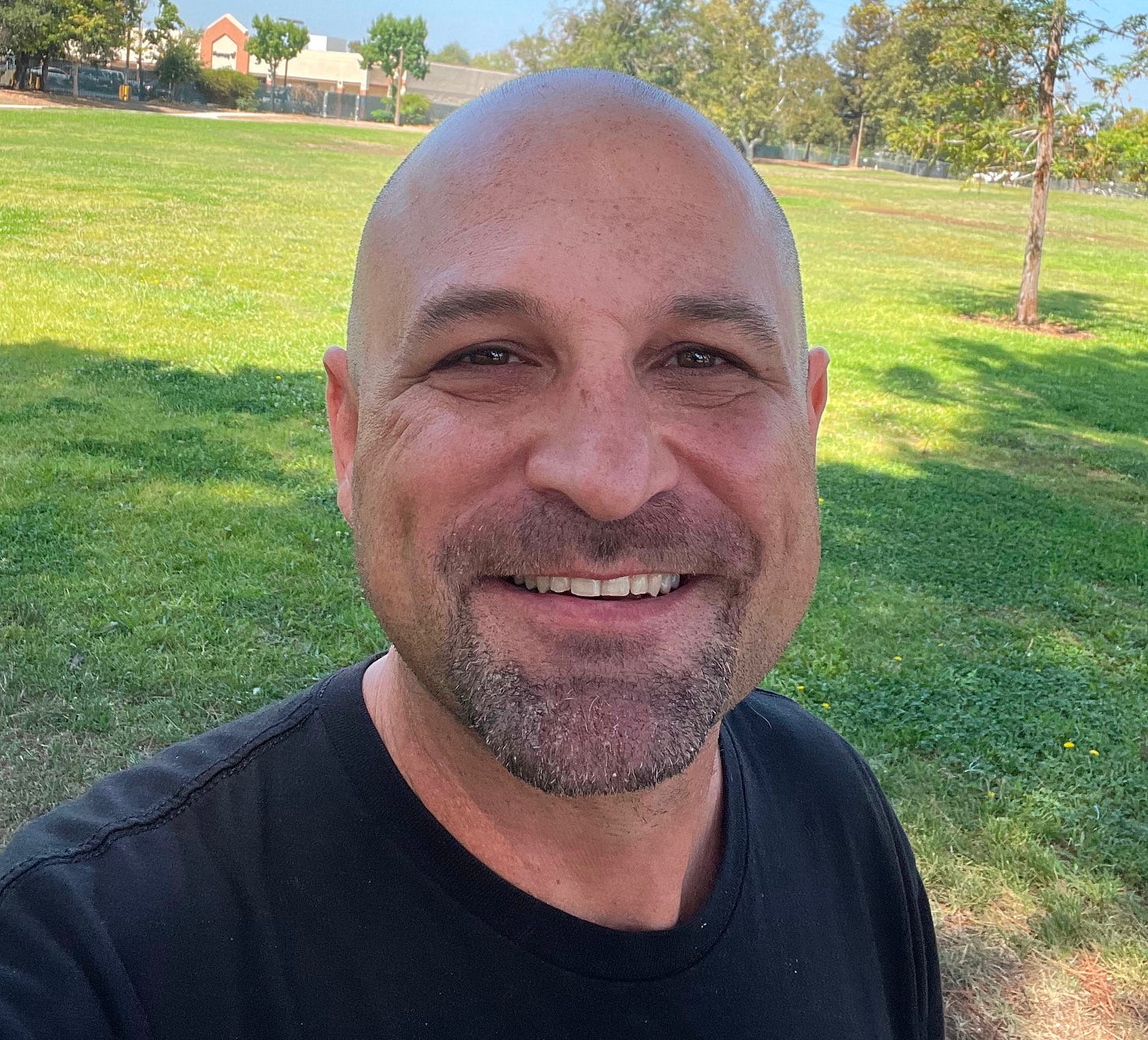Disrupting Our Default
It starts with seeing. It continues with choice.
👋 Hey, it’s Bryan. Welcome to BEing Human, where we discuss what it takes to lead, perform at your best, and connect Human-to-Human.
I thought learning Portuguese would be easier. I thought, "I’ve learned languages before, Spanish and Japanese. I know the process: pattern recognition, repetition, and immersion. My brain knows how to do this."
And yet, here I am - stumbling, halting, tripping over sounds that disappear before I can catch them. Portuguese swallows whole vowels and devours them like a magician pulling scarves into his fist, leaving me only ghosts of syllables to hold onto.
My mouth shapes a word, but it comes out wrong. The person I’m speaking to squints slightly, that split-second hesitation before they figure out what I am trying to say. I correct myself. Try again. Sometimes they nod, switch to English, sometimes they move on, and I feel like I’ve dropped a glass on a tile floor.
Somewhere in my mind, frustration rises. I should be better at this. It’s a voice I know well. It doesn’t just appear when I’m trying to roll an R in a way that feels unnatural in my throat - it shows up everywhere. At work. In relationships. In my head, when I think I should have an answer, I don’t.
The work I’m learning isn’t just in the repetition. It’s in the observation.
Watching the Mind Like a Movie
A concept in psychology is called cognitive defusion - stepping back from our thoughts instead of getting tangled up in them. Instead of I’m terrible at this, it’s Oh, look at that thought showing up again. It's like watching a movie instead of acting in it.
Research supports this. A 2016 Journal of Contextual Behavioral Science study found that people who practice observing their thoughts rather than reacting to them experience greater clarity and emotional regulation.
Meditation, mindfulness, and journaling work because they shift our relationship to thoughts rather than eliminating them.
And I get it. It’s one thing to know this academically. It’s another to sit in the middle of it, face hot from embarrassment after butchering a simple phrase to a waiter, feeling the prickle of shame, the immediate urge to shut down.
Because that’s what we do, right? We don’t just experience a thought; we believe it. We let it tell a story about who we are. The idea isn’t just that I messed up that sentence - it’s I’m bad at this, I’m not smart enough, I’ll never be fluent, This is too hard, Why am I even trying? A single moment folds into a narrative, and suddenly, it’s not about the language anymore—it’s about worth.
But what if I just watched the thought instead?
Creating Space Between You and the Thought
Imagine your thoughts as text scrolling across a screen. You don’t have to grab onto them. You don’t have to internalize them. You can just… let them be.
I picture my mind as a theater, the thoughts flickering up on a giant screen. There’s the one about how I should be better at this. The one about how embarrassing it is to get things wrong in public. The one about how I’ll never be fluent.
And then there’s me, sitting in the audience, watching it all play out.
The moment I stop believing every thought, something shifts. The pressure lightens. The frustration softens. I’m not forcing myself to have a different idea - I’m just giving myself enough space to see it for what it is.
A thought. Not the truth.
The Power of Noticing
This shift—this simple act of noticing—has changed everything in language learning and life.
Because it’s never just about Portuguese; it’s about how we respond to discomfort, failure, and the moments we feel exposed. It’s about how we handle that voice that says you should be better at this by now.
I think about all the times I’ve let thoughts take over.
The hesitation before publishing something is, what if it’s not good enough?
The worry before a big decision: What if I make the wrong call?
The way my brain can spin a single moment into an entire identity - I failed at this, so I must be a failure.
I’ve learned to try something different. Let the thought come, I watch it, and then I ask myself:
Is this true?
Most of the time, it isn’t.
I’m not bad at Portuguese - I’m learning.
I’m not a failure - I’m practicing something new.
I don’t need to be perfect - I need to keep going.
And this is where the fundamental shift happens. The more we observe, the less power our thoughts have over us. The more we see them as passing moments, the more we realize we don’t have to listen. We don’t have to buy in.
We can just notice.
And then we can keep going.
Stay human
Bryan
Comments are open to all subscribers. You can also upgrade your subscription.
You are reading BEing Human, a weekly newsletter about an honest exploration of trust, leadership, and mindfulness from the bestselling author of Human-to-Human and Shareology, CEO, and TEDTalker. Written by Bryan Kramer, we dive into what it means to lead ourselves - in life, business, and the moments that matter most.
Top Recent Posts:
The Art of Telling Your Boss They Suck - Without Actually Saying It
10 Days of Silence: What I recently learned from a 10-day silent Buddhist retreat in Macedonia
Why Meditation Isn’t Just About Relaxing - It’s Rewiring: The four stages of meditation
Interested in Coaching or hiring me to speak - drop me a note
Thanks for spending a moment with me. - Bryan



progress, not perfection.
Thanks Bryan. Good words